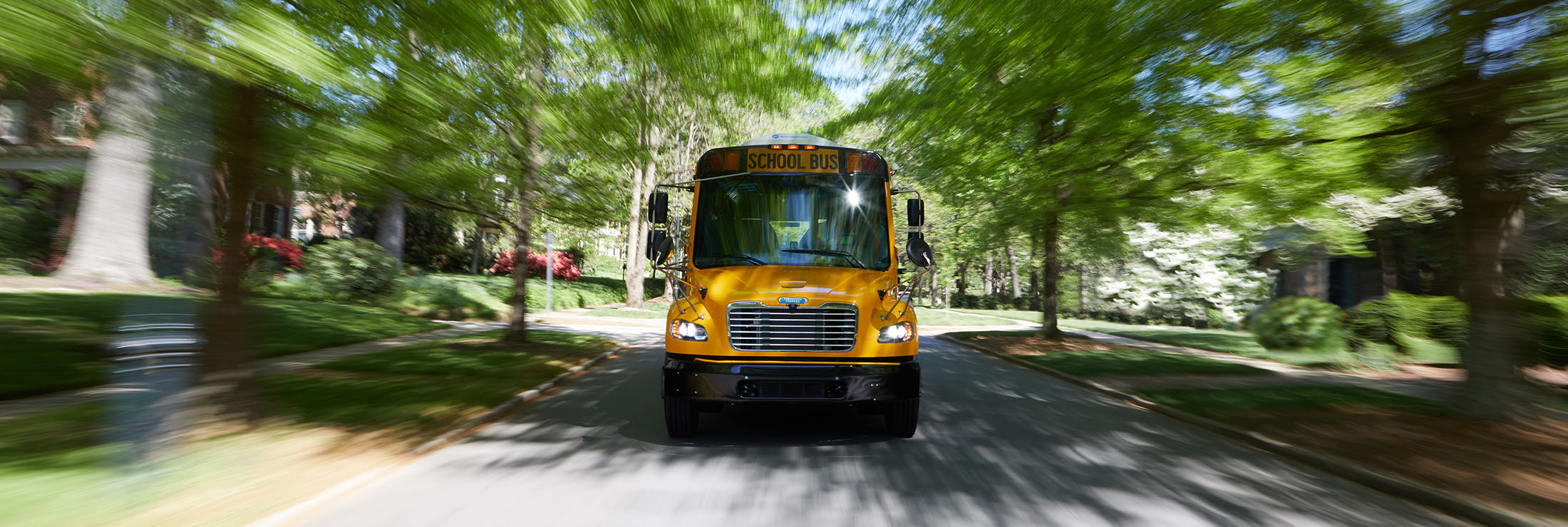
The zero-emission school bus difference.
Yellow school buses make millions of trips per year. That’s a lot of miles—and a massive opportunity. Investing in zero-emission school buses could drastically reduce harmful emissions and provide a cleaner, more sustainable future for generations to come.
While clean-diesel and alternative-fuel buses are significantly cleaner than they were in the past, electric school buses, like the Saf-T-Liner® C2 Jouley,® produce zero emissions at the tailpipe. This can go a long way toward improving the air we breathe and the health of our kids, who can be more susceptible to the negative effects of pollution.

A cleaner tomorrow, today.
Jouley’s batteries give back to the environment even after their full life cycle on the road. In fact, after their predicted life span of around 15 years, they can be reused or recycled. Proterra® electric bus batteries are specially designed with pack architecture to support second-life applications like energy storage systems—even in harsh environmental conditions.
Proterra’s battery design also allows for easy separation of components. This enables 100% of the aluminum in the electric bus battery to be recycled. Instead of sending batteries to a hazardous waste incinerator, Proterra works with top-tier recycling companies that specialize in extracting and repurposing battery materials. This way, they are able to recover 99% of the precious metals used in their batteries.
At Thomas Built Buses, we will help you determine the best recycling option for your electric bus batteries when the time comes.

A commitment to sustainability.
A proud subsidiary of Daimler Trucks North America, Thomas Built Buses is part of a global commitment to sustainable efforts. In fact, all DTNA companies are committed to the emissions-free technology of tomorrow. DTNA has goals to reduce volatile organic compounds, energy consumption, waste generation and water consumption at all of its manufacturing plants by 2025.
